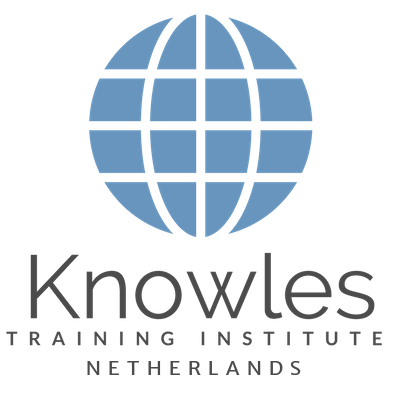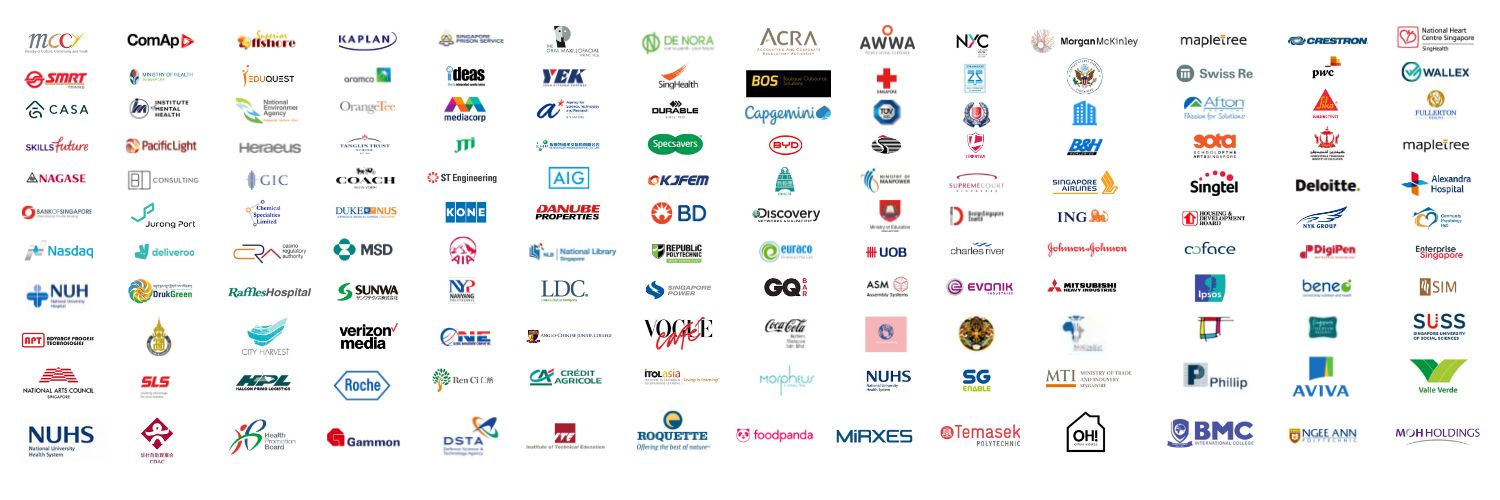Conflict Resolution for Leaders Training Course in Netherlands
Our Leadership Courses in Netherlands is also available in Amsterdam, Rotterdam, The Hague (Den Haag), Utrecht, Eindhoven, Tilburg, Groningen, Almere, Breda, Nijmegen, Enschede, Haarlem, Arnhem, Amersfoort, Zaanstad, Apeldoorn, ‘s-Hertogenbosch (Den Bosch), Hoofddorp, Maastricht, Leiden, Dordrecht, Zoetermeer, Zwolle, Deventer, Delft, Alkmaar, Heerlen, Alphen aan den Rijn, Helmond, Leeuwarden, Volendam, Giethoorn, Scheveningen, Middelburg, Roermond, Valkenburg aan de Geul, Zandvoort, Kinderdijk, Gouda.
Navigating conflicts within a team or organisation is an inevitable aspect of leadership, and mastering the art of conflict resolution is paramount for effective leadership. The “Conflict Resolution for Leaders Training Course in the Netherlands” offers a comprehensive programme tailored to equip leaders with the skills necessary to manage and resolve conflicts adeptly. Rooted in the unique context of the Netherlands, this course provides leaders with practical strategies and techniques to foster a harmonious work environment conducive to productivity and growth.
Our course recognises that conflict, when managed effectively, can serve as a catalyst for positive change and innovation within teams. Through a blend of theory, case studies, and interactive exercises, participants will delve into the underlying causes of conflicts and gain insights into various conflict resolution approaches. By understanding the dynamics of conflict and its impact on team dynamics, leaders can proactively address issues and prevent escalation, fostering a culture of open communication and collaboration.
Central to the “Conflict Resolution for Leaders Training Course in the Netherlands” is the exploration of diverse conflict resolution techniques tailored to different scenarios. From active listening and empathy-building exercises to negotiation strategies and mediation skills, leaders will acquire a versatile toolkit to address conflicts constructively. Emphasis is placed not only on resolving existing conflicts but also on cultivating the skills necessary to prevent conflicts from arising in the first place.
Furthermore, the course places a strong emphasis on cultural sensitivity and diversity, acknowledging the multicultural landscape of the Netherlands. Leaders will learn to navigate conflicts stemming from cultural differences with respect and understanding, promoting inclusivity and cohesion within their teams. By fostering an environment where diverse perspectives are valued and respected, leaders can harness the collective strength of their teams to overcome challenges and drive success.
In conclusion, the “Conflict Resolution for Leaders Training Course in the Netherlands” offers an invaluable opportunity for leaders to hone their conflict resolution skills in a culturally diverse and dynamic setting. Through practical learning experiences and tailored guidance, participants will emerge equipped to navigate conflicts with confidence and lead their teams towards greater collaboration and success in the Netherlands and beyond.
Who Should Attend this Conflict Resolution for Leaders Training Course in Netherlands
In any professional setting, conflict is inevitable, but how leaders manage and resolve it can make all the difference in maintaining a harmonious work environment and achieving organisational goals. The “Conflict Resolution for Leaders Training Course in Netherlands” offers a comprehensive approach to equipping leaders with the necessary skills to navigate and effectively resolve conflicts within their teams and organisations. Rooted in the context of the Netherlands’ dynamic and diverse workplace culture, this course provides leaders with practical strategies and techniques to address conflicts constructively and foster a culture of collaboration and understanding.
Throughout the “Conflict Resolution for Leaders Training Course in Netherlands,” participants will delve into the various facets of conflict resolution, from understanding the underlying causes of conflicts to implementing effective communication strategies and negotiation techniques. By examining real-world case studies and engaging in interactive simulations, leaders will gain valuable insights into managing conflicts of varying complexities. Moreover, the course emphasises the importance of proactive conflict prevention and the role of leadership in creating a supportive and inclusive work environment where conflicts can be addressed openly and respectfully.
Leaders from various professional backgrounds and industries stand to benefit greatly from the “Conflict Resolution for Leaders Training Course in Netherlands.” Whether you are a CEO, HR manager, team leader, project manager, or department head, mastering conflict resolution skills is essential for fostering productive relationships, enhancing team performance, and driving organisational success. Don’t miss the opportunity to hone your conflict resolution capabilities and become a more effective leader with the “Conflict Resolution for Leaders Training Course in Netherlands.”
- Executives
- Team Leaders
- Entrepreneurs
- Educators
- Recent Graduates
Course Duration for Conflict Resolution for Leaders Training Course in Netherlands
The “Conflict Resolution for Leaders Training Course in the Netherlands” offers flexible durations to accommodate varying schedules and learning preferences. Participants can choose from immersive options such as a comprehensive three-day workshop, a condensed one-day session, or a focused half-day seminar, depending on their availability and learning needs. Additionally, shorter formats such as a 90-minute or 60-minute webinar provide convenient opportunities to delve into key concepts and strategies of conflict resolution within the context of leadership.
- 2 Full Days
- 9 a.m to 5 p.m
Course Benefits of Conflict Resolution for Leaders Training Course in Netherlands
The “Conflict Resolution for Leaders Training Course in the Netherlands” empowers leaders with essential skills to effectively manage conflicts and foster a harmonious work environment.
- Improved communication skills
- Enhanced conflict resolution abilities
- Increased team cohesion and morale
- Reduced workplace stress and tension
- Enhanced leadership credibility and trust
- Improved problem-solving skills
- Greater ability to manage diverse teams
- Increased productivity and efficiency
- Reduced employee turnover
- Enhanced organisational culture and reputation
Course Objectives for Conflict Resolution for Leaders Training Course in Netherlands
The “Conflict Resolution for Leaders Training Course in the Netherlands” aims to equip leaders with the knowledge and skills necessary to proactively manage conflicts and cultivate a positive workplace culture. Through a combination of theoretical understanding and practical application, participants will develop strategies to address conflicts constructively and foster collaboration within their teams.
- Identify underlying causes of conflicts within teams and organisations
- Develop active listening skills to understand various perspectives during conflicts
- Implement effective communication techniques to facilitate conflict resolution
- Utilise negotiation strategies to reach mutually beneficial resolutions
- Apply mediation skills to facilitate discussions and resolve disputes
- Foster empathy and understanding to build stronger relationships within teams
- Create a culture of open communication and trust to prevent conflicts from escalating
- Develop strategies to manage emotions and maintain composure during conflicts
- Implement conflict resolution policies and procedures within the organisation
- Provide constructive feedback to resolve conflicts and promote continuous improvement
- Cultivate a supportive and inclusive work environment to reduce conflicts
- Evaluate the effectiveness of conflict resolution strategies and make adjustments as needed
Course Content for Conflict Resolution for Leaders Training Course in Netherlands
The “Conflict Resolution for Leaders Training Course in the Netherlands” delves into various aspects of conflict resolution to equip leaders with practical strategies for managing and resolving conflicts within their teams and organisations.
- Identify underlying causes of conflicts within teams and organisations
- Analyse common triggers and root causes of conflicts in the workplace.
- Recognise the role of individual differences and organisational dynamics in conflict escalation.
- Assess the impact of cultural differences on conflict resolution approaches.
- Develop active listening skills to understand various perspectives during conflicts
- Practice empathetic listening to understand the underlying concerns of conflicting parties.
- Learn techniques for paraphrasing and summarising to demonstrate understanding during conflicts.
- Cultivate curiosity and openness to alternative viewpoints during conflict discussions.
- Implement effective communication techniques to facilitate conflict resolution
- Explore assertive communication techniques to express needs and concerns diplomatically.
- Learn to communicate clear expectations and boundaries to prevent misunderstandings.
- Practice non-verbal communication strategies to convey empathy and build rapport.
- Utilise negotiation strategies to reach mutually beneficial resolutions
- Understand different negotiation styles and their applicability in conflict resolution.
- Learn to identify common interests and goals to find win-win solutions.
- Practice principled negotiation techniques to preserve relationships while resolving conflicts.
- Apply mediation skills to facilitate discussions and resolve disputes
- Learn the role of a mediator in facilitating constructive dialogue between conflicting parties.
- Practice impartiality and neutrality when mediating conflicts to ensure fairness.
- Develop techniques for reframing issues and guiding parties towards mutually agreeable solutions.
- Foster empathy and understanding to build stronger relationships within teams
- Cultivate a culture of empathy and understanding to foster trust and collaboration.
- Encourage team members to share their perspectives and experiences to promote empathy.
- Lead by example by demonstrating empathy and understanding in your interactions with others.
- Create a culture of open communication and trust to prevent conflicts from escalating
- Promote transparent communication channels to encourage open dialogue and feedback.
- Establish norms for constructive conflict resolution and encourage proactive conflict management.
- Build trust within teams by fostering an environment of honesty, accountability, and respect.
- Develop strategies to manage emotions and maintain composure during conflicts
- Practice mindfulness techniques to regulate emotions and stay calm during conflict situations.
- Learn to identify triggers and warning signs of escalating emotions and intervene proactively.
- Develop coping mechanisms to handle stress and maintain emotional balance during conflicts.
- Implement conflict resolution policies and procedures within the organisation
- Review existing conflict resolution policies and procedures and identify areas for improvement.
- Communicate conflict resolution protocols to all employees and provide training as needed.
- Establish mechanisms for reporting and addressing conflicts in a timely and fair manner.
- Provide constructive feedback to resolve conflicts and promote continuous improvement
- Learn to deliver feedback effectively to address behavioural issues and performance gaps.
- Encourage a growth mindset by framing feedback as an opportunity for learning and development.
- Follow up on conflicts with constructive feedback sessions to track progress and ensure resolution.
- Cultivate a supportive and inclusive work environment to reduce conflicts
- Promote diversity and inclusion initiatives to foster a culture of acceptance and respect.
- Encourage collaboration and teamwork to build strong relationships and minimise conflicts.
- Address systemic issues and structural inequalities that may contribute to conflicts within the organisation.
- Evaluate the effectiveness of conflict resolution strategies and make adjustments as needed
- Monitor the outcomes of conflict resolution efforts and assess their impact on team dynamics.
- Solicit feedback from team members and stakeholders to identify areas for improvement.
- Adapt conflict resolution strategies based on lessons learned and changing organisational needs.
Upcoming Course and Course Brochure Download for Conflict Resolution for Leaders Training Course in Netherlands
Stay tuned for upcoming updates and be the first to know about the latest offerings of the “Conflict Resolution for Leaders Training Course in the Netherlands” by subscribing to our newsletter. For detailed information and to explore the full range of our course offerings, you can request our comprehensive brochures. Don’t miss out on the opportunity to enhance your leadership skills with the “Conflict Resolution for Leaders Training Course in the Netherlands.”



